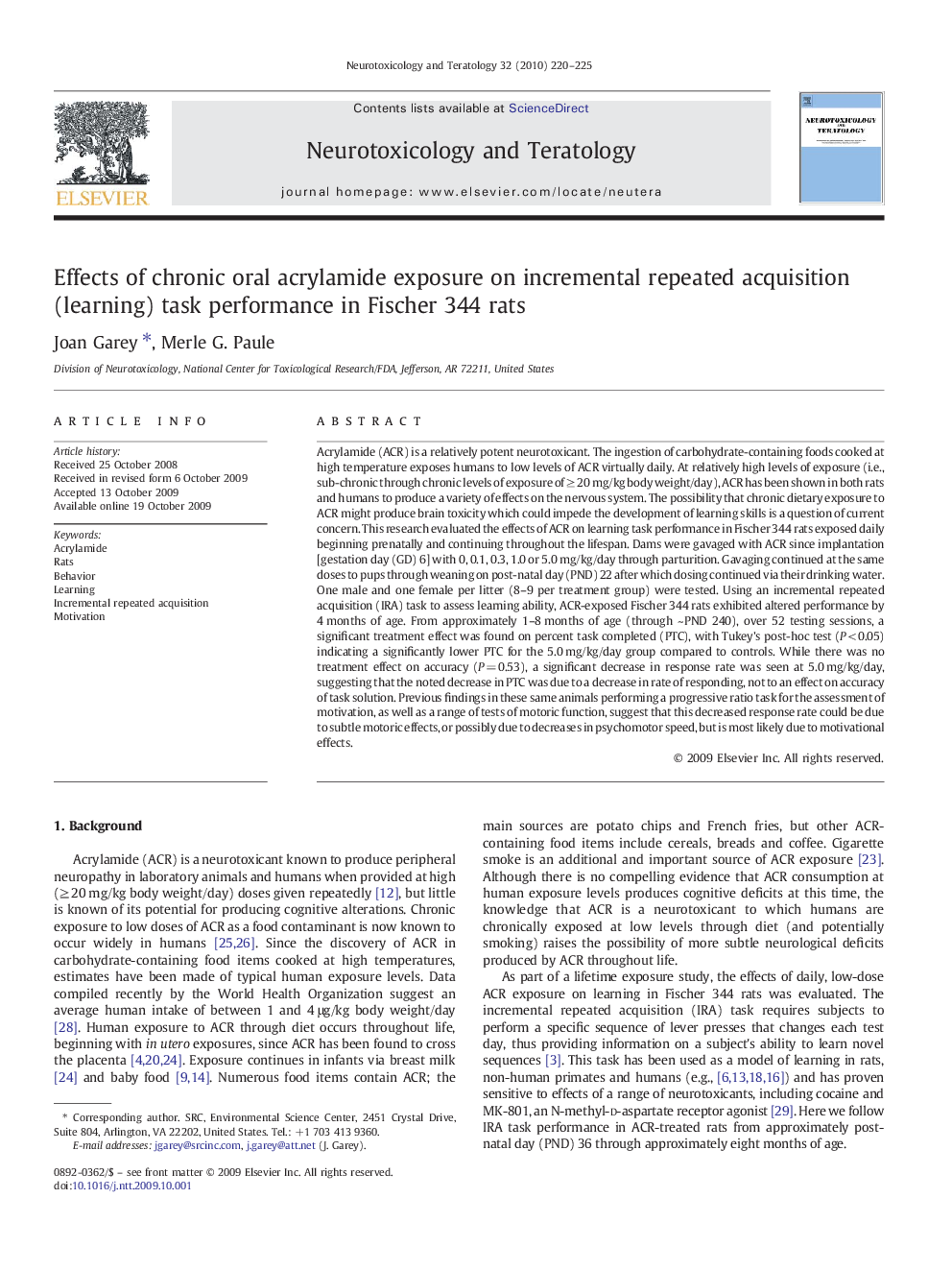| کد مقاله | کد نشریه | سال انتشار | مقاله انگلیسی | نسخه تمام متن |
|---|---|---|---|---|
| 2591775 | 1131827 | 2010 | 6 صفحه PDF | دانلود رایگان |

Acrylamide (ACR) is a relatively potent neurotoxicant. The ingestion of carbohydrate-containing foods cooked at high temperature exposes humans to low levels of ACR virtually daily. At relatively high levels of exposure (i.e., sub-chronic through chronic levels of exposure of ≥ 20 mg/kg body weight/day), ACR has been shown in both rats and humans to produce a variety of effects on the nervous system. The possibility that chronic dietary exposure to ACR might produce brain toxicity which could impede the development of learning skills is a question of current concern. This research evaluated the effects of ACR on learning task performance in Fischer 344 rats exposed daily beginning prenatally and continuing throughout the lifespan. Dams were gavaged with ACR since implantation [gestation day (GD) 6] with 0, 0.1, 0.3, 1.0 or 5.0 mg/kg/day through parturition. Gavaging continued at the same doses to pups through weaning on post-natal day (PND) 22 after which dosing continued via their drinking water. One male and one female per litter (8–9 per treatment group) were tested. Using an incremental repeated acquisition (IRA) task to assess learning ability, ACR-exposed Fischer 344 rats exhibited altered performance by 4 months of age. From approximately 1–8 months of age (through ~ PND 240), over 52 testing sessions, a significant treatment effect was found on percent task completed (PTC), with Tukey's post-hoc test (P < 0.05) indicating a significantly lower PTC for the 5.0 mg/kg/day group compared to controls. While there was no treatment effect on accuracy (P = 0.53), a significant decrease in response rate was seen at 5.0 mg/kg/day, suggesting that the noted decrease in PTC was due to a decrease in rate of responding, not to an effect on accuracy of task solution. Previous findings in these same animals performing a progressive ratio task for the assessment of motivation, as well as a range of tests of motoric function, suggest that this decreased response rate could be due to subtle motoric effects, or possibly due to decreases in psychomotor speed, but is most likely due to motivational effects.
Journal: Neurotoxicology and Teratology - Volume 32, Issue 2, March–April 2010, Pages 220–225